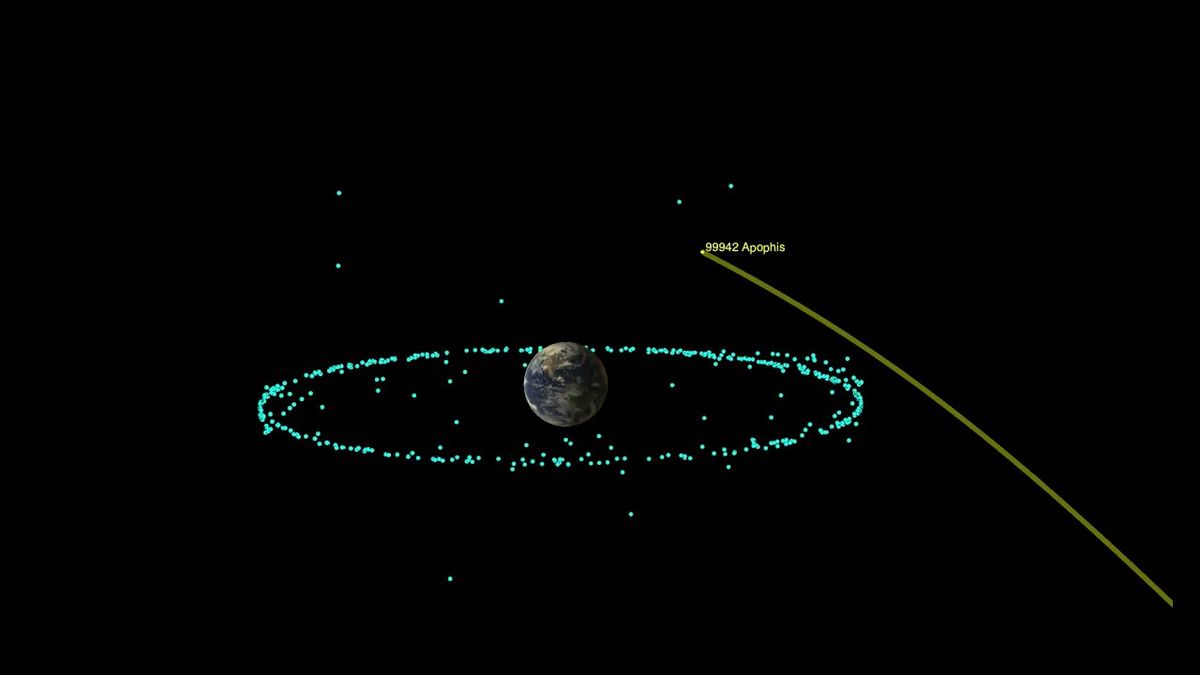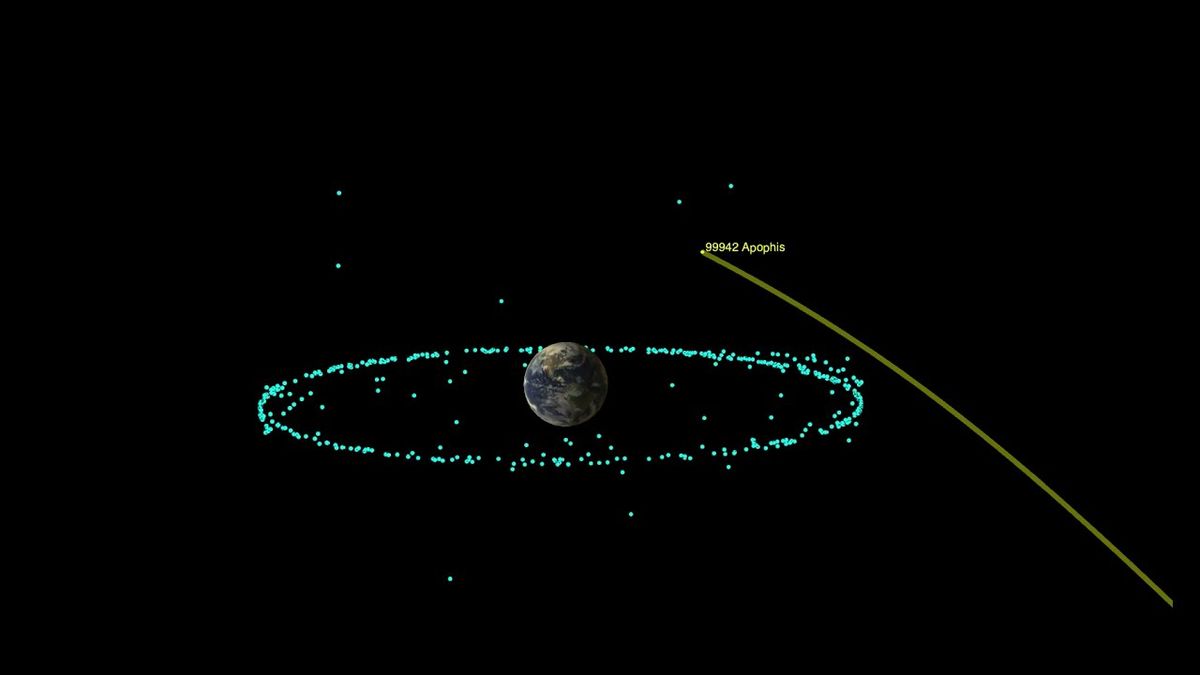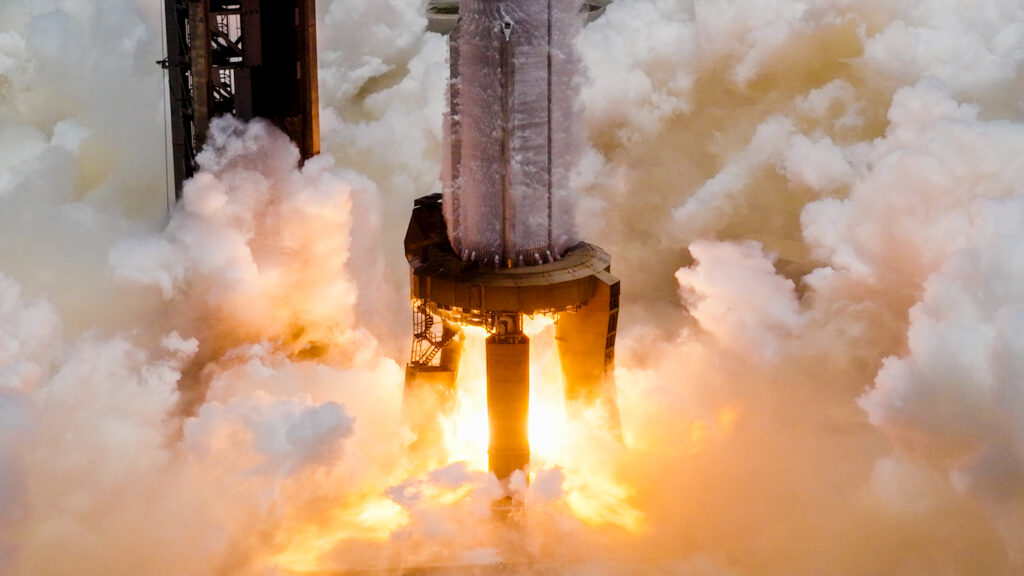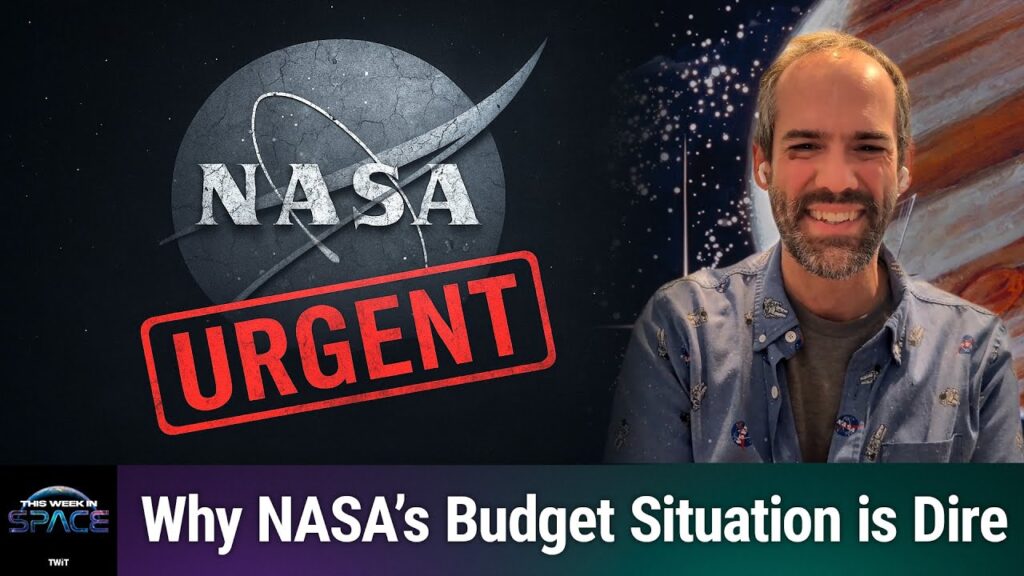
NASA’s Small Bodies Assessment Group wants the agency to send spacecraft to visit the asteroid Apophis before it makes a close approach to Earth in 2029.
Apophis, also known as asteroid 99942, was once thought to be on a potential collision course with Earth. The near-Earth object is estimated to be about 1,100 feet (340 meters) and could cause serious damage were it to impact our planet. Now however this ancient piece of the early solar system is of great scientific interest.
OSIRIS-REx, which collected material from asteroid Bennu in 2020 and is set to deliver the samples to Earth on Sept. 24, is due to embark on an extended mission to Apophis, becoming OSIRIS-APEX (OSIRIS-Apophis Explorer). It will however slip into orbit around the asteroid after the close approach, and the Small Bodies Assessment Group (SBAG) wants to get an up close look beforehand too.
SBAG “encourages NASA to pursue a mission opportunity, achievable within available resources, to explore Apophis prior to its close Earth approach, whether initiating its own effort or via collaboration with foreign and domestic partners,” according to findings from its July 2023 meeting recently published online and noted in a Sept. 1 report by Space Policy Online.
Related: NASA wants fleet of spacecraft to watch infamous Apophis asteroid approach Earth: report
Data from before and after the flyby will “provide a complete investigation of this remarkable opportunity to quantify and understand in real time the consequences of planetary tides on the evolution of asteroids and glean important information on Apophis’ interior structure, which is otherwise unobtainable,” according to the findings.
Apophis will get within around 20,000 miles (32,000 kilometers) of Earth on Friday, April 13, 2029. This is within the distance that geosynchronous satellites orbit and 10 times closer than our moon. Apophis will even be visible to the naked eye in some parts of the world during its rendezvous.
Earlier this year NASA officials presented a proposal at the 8th Planetary Defense Conference in Vienna to send a swarm of tiny spacecraft to eye up Apophis.
RELATED STORIES:
Space Policy Online notes that the two small Janus spacecraft, originally planned to fly on the Psyche mission, may be potential possibilities. The pair were dropped from the Psyche launch after the mission was delayed, resulting in a change of trajectory and missing their chance to visit two binary near-Earth asteroid systems. The report also notes however that NASA and its Planetary Science Division face considerable budgetary challenges.
In a related finding SBAG also encourages “NASA and the international planetary defense community to work with the United Nations to declare 2029 the International Year of Planetary Defense,” — the same year as the Apophis visit.



